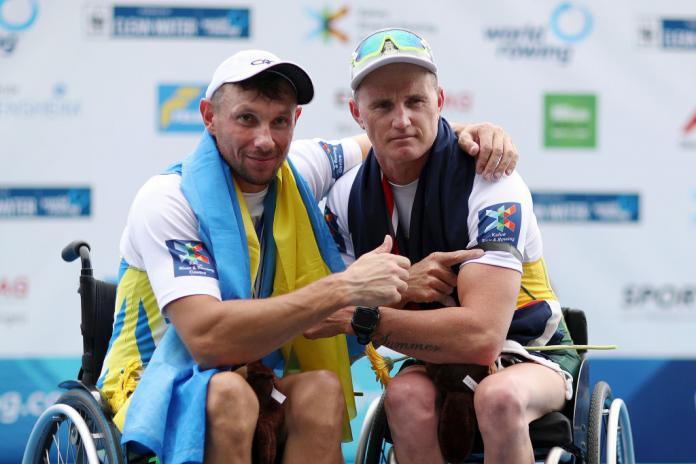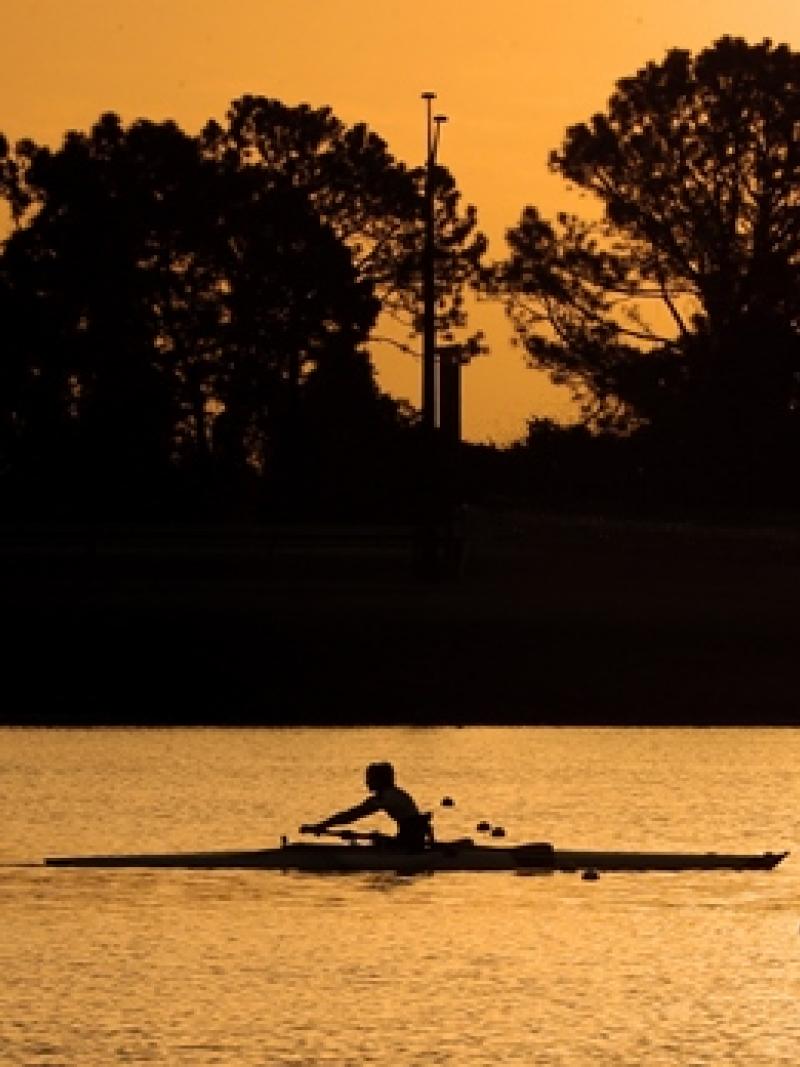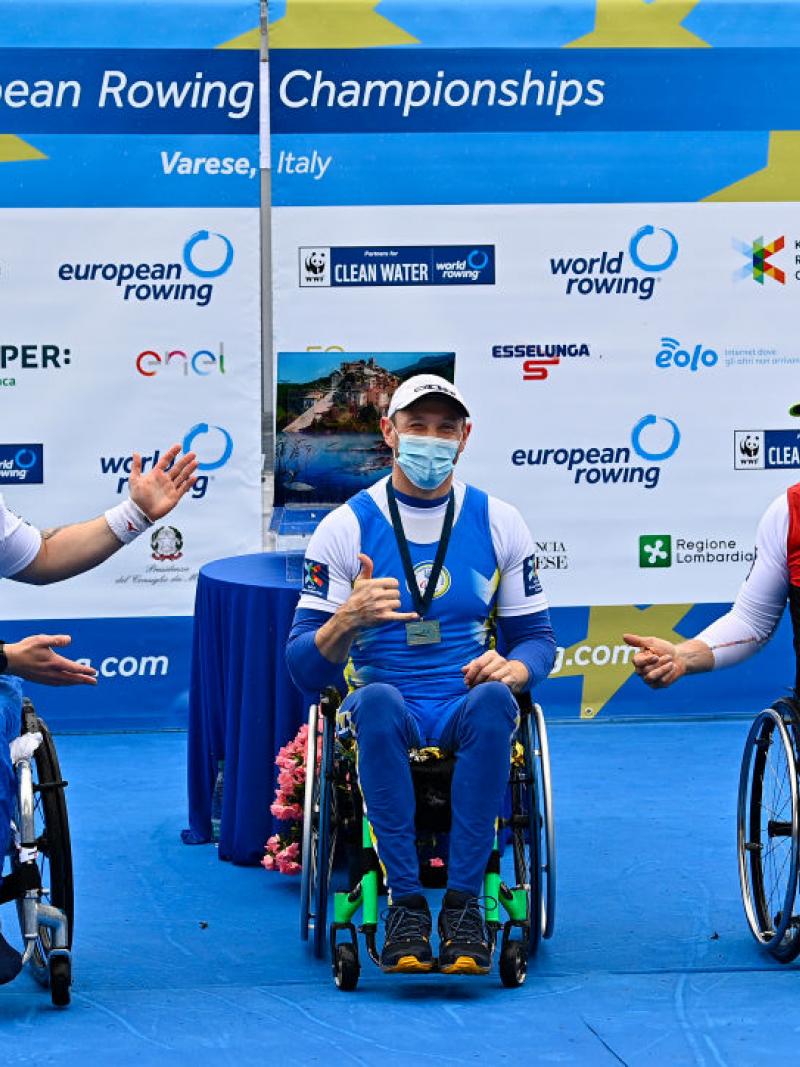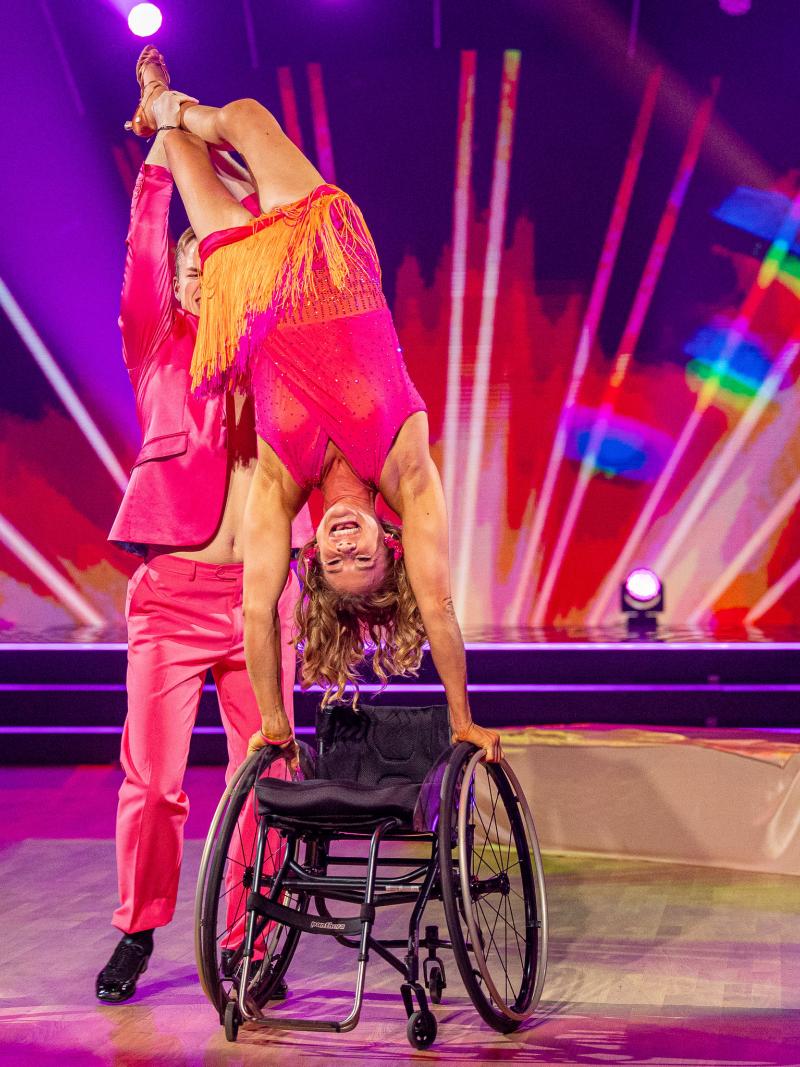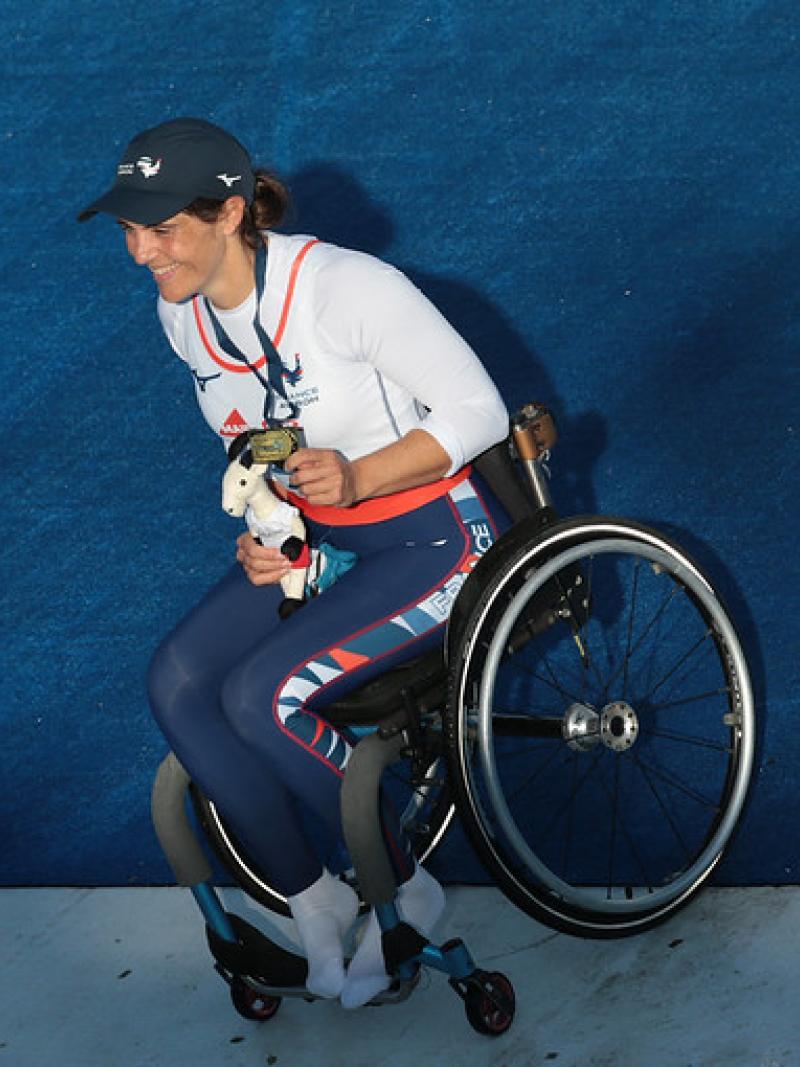Hardships help Ukrainian Para rower Roman Polianskyi become stronger
From loss of his parents to escaping war in 2014, Paralympic and world champion keeps defying adversities 26 Jun 2021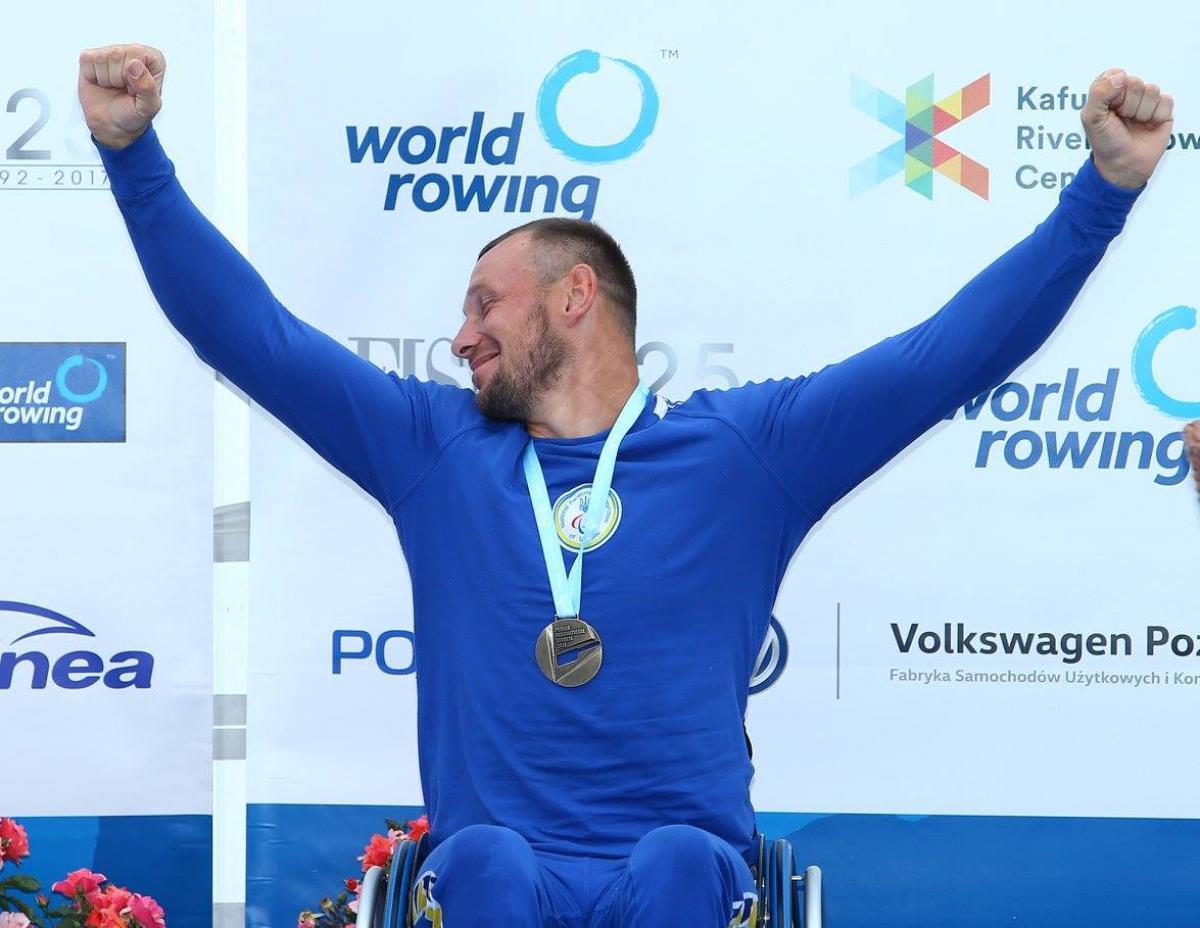
Ukraine’s Roman Polianskyi was born with a competitive fire that was lovingly fuelled by his father. That has been the base for his dominance in Para rowing since the Rio 2016 Paralympic Games.
“My father saw a special fire in me and he instilled a love of sports [in me] from an early age,” Polianskyi said.
He was an active athlete as a child, even after being diagnosed at age 10 with hereditary spastic paraplegia (HSP) that affects the muscles with progressive stiffness and decreased elasticity in the lower limbs.
That did not phase the future Paralympic champion.
“Once, when I was at the Burdenko Spinal Health Resort in Crimea, I took part in arm wrestling competitions,” Polianskyi recalled. “I won first place with both the right and left arms.”
That upper arm strength would come in handy on the water.
FINDING HIS ‘ELIXIR OF LIFE’
Polianskyi stayed active in athletics as a teenager. But his most difficult hardship followed.
He lost his father to a work accident when he was 18. His mother passed away shortly thereafter.
“The most important thing is to start with small goals and move forward,” he said about dealing with adversity. “I am lucky to have the character of my father that gave birth to my will to win.”
That competitive fire led to Polianskyi pick up canoe sprint. But at the time, the sport was not part of the Paralympic programme for Rio 2016 yet, so he found another sport that used similar muscles – Para rowing, which was already on the programme since Beijing 2008.
“I was attracted to rowing,” he said of the decision. “Water has really become my ‘elixir of life.’”
GOING THE LONG DISTANCE
But then came another hardship.
When war broke out near his home in Donetsk in 2014, Polianskyi was forced to flee. He made the sport switch from his new home.
“I was already an IDP [Internally Displaced Person, i.e., a refugee within your own country] in Odesa at that time,” he remembered. “It was difficult at first – to overcome uncertainty, even fear … But what was difficulty – became an advantage.”
An advantage might be an understatement.
Polianskyi won Paralympic gold in the men's single sculls just two years after picking up the sport, famously beating both the reigning Paralympic champion Cheng Huang of China and Australian world champion Erik Horrie in the process of the men’s single sculls.
Then, another challenge to overcome. Para rowing moved from 1,000 metre races to the Olympic distance of 2,000 metres. It was an adjustment for him at first.
He lost the World Championship the year after his Paralympic triumph to Horrie but learned a valuable lesson.
“I thought for a long time about this race and about the fact that every man strives to be the strongest, but the hardest struggle is internal,” the 34-year-old said. “I remember it was the hardest race, bad weather. I realised that I had not yet reached the distance of 2,000 metres and felt that I was not ready yet. But I really wanted to win.”
Polianskyi ramped up his training to 10 two-and-a-half hour sessions a week. The results were apparent.
After being edged by rival Horrie by less than a second at the 2018 World Rowing Championships, Polianskyi would himself become world champion in 2019, setting a World Best Time with 9:12.99 – which still stands.
He also captured the European Championship title in April by nearly 12 seconds ahead of Great Britain’s Benjamin Pritchard.
“My muscles seem to be designed for long distances, long work,” he admitted. “The long distance – it’s mine!”
THE POWER OF PARA SPORTS
Polianskyi hopes to add a second straight Paralympic gold to his trophy case this summer, and along with it a Paralympic-best time in the PR1M1x.
After racing, he hopes to work in rehabilitation.
“I would most like to help children and people with disabilities. Sport is a great force for all people with disabilities, so everywhere I recommend everyone to be physically active and play sports.”
“My wife Oleksandra – herself a Para rower – and I like to watch movies, listen to music, and cook … sometimes we go to the village for barbeques,” he continued. “There is a lake nearby and we like to swim in it.”

 Facebook
Facebook
 Instagram
Instagram
 Twitter
Twitter
 Youtube
Youtube
 TikTok
TikTok
 Newsletter Subscribe
Newsletter Subscribe

